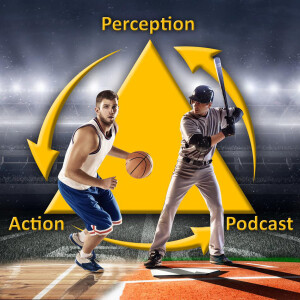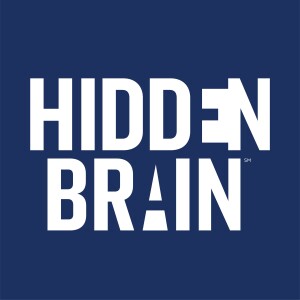
The Perception & Action Podcast
Science:Social Sciences
A look at some different ways we can cue and provide feedback to a performer including bandwidth, temporal-comparative and translational feedback and rhythm-based cues.
Articles:
Effect of bandwidth knowledge of results on movement consistency Applying Bandwidth Feedback Scheduling to a Golf Shot Temporal-Comparative Feedback Facilitates Golf PuttingDevelopment of a rhythmic auditory biofeedback system to assist improving the kinetic chain for bat swing performance
The Importance of Temporal Structure and Rhythm for the Optimum Performance of Motor Skills: A New Focus for Practitioners of Sport Psychology
More information:
http://perceptionaction.com/
My Research Gate Page (pdfs of my articles)
My ASU Web page
Podcast Facebook page (videos, pics, etc)
Subscribe in iOS/Apple
Subscribe in Anroid/Google
Support the podcast and receive bonus content
Credits:
The Flamin' Groovies - Shake Some Action
Mark Lanegan - Saint Louis Elegy
via freemusicarchive.org and jamendo.com
More Episodes
95 – The Legacy of Nikolai Bernstein III: “Repetition without Repetition” & Beyond
 2018-02-06
2018-02-06
94 – The Legacy of Nikolai Bernstein II: Skill Acquisition through Free(z)ing Degrees of Freedom
 2018-01-30
2018-01-30
93 – The Legacy of Nikolai Bernstein I: Problems in Movement Coordination
 2018-01-23
2018-01-23
92 – Differential Learning
 2018-01-16
2018-01-16
91 – Variability of Practice Revisited
 2018-01-09
2018-01-09
90 – Interview with Leah Robinson, Michigan, Fundamental Movement Skills
 2017-12-12
2017-12-12
89 – The Constraints-Led Approach to Coaching III: Evaluating its Effectiveness
 2017-12-05
2017-12-05
88 – The Constraints-Led Approach to Coaching II: Dynamics & Representative Design
 2017-11-28
2017-11-28
87 – The Constraints-Led Approach to Coaching I: What are Constraints?
 2017-11-21
2017-11-21
86 – Interview with Brian McCormick, Talent Development & Practice Design in Basketball
 2017-11-14
2017-11-14
85 – Interview with Dave Mann, Vrije University, Vision & Gaze Behavior in Sports
 2017-11-07
2017-11-07
84 – Time Scales in Motor Learning
 2017-10-31
2017-10-31
83 – Vision & Gaze Behavior in Baseball Batting
 2017-10-24
2017-10-24
82 - Movement Instruction, Knowledge & Description
 2017-10-17
2017-10-17
81 – Interview with Tim Buszard, ISEAL, Scaling Equipment, WMC, Contextual Interference
 2017-10-10
2017-10-10
80 – Interview with Gaby Wulf & Rebecca Lewthwaite, OPTIMAL Theory of Motor Learning
 2017-10-03
2017-10-03
79 – Designing Affective Practice I: Using Pressure to Aid Motor Learning
 2017-09-26
2017-09-26
78 – New Research on Changing Movement Patterns
 2017-09-19
2017-09-19
77 – Achieving & Assessing Transfer in Sport Training
 2017-09-12
2017-09-12
76 – Interview with Mark Williams, Utah, Talent ID and Development
 2017-09-05
2017-09-05
Create your
podcast in
minutes
- Full-featured podcast site
- Unlimited storage and bandwidth
- Comprehensive podcast stats
- Distribute to Apple Podcasts, Spotify, and more
- Make money with your podcast
It is Free
You may also like

The Poetry of Science


Behavioral Grooves Podcast


Hidden Brain


Something You Should Know


Invisibilia


- Privacy Policy
- Cookie Policy
- Terms of Use
- Consent Preferences
- Copyright © 2015-2024 Podbean.com



 iOS
iOS Android
Android